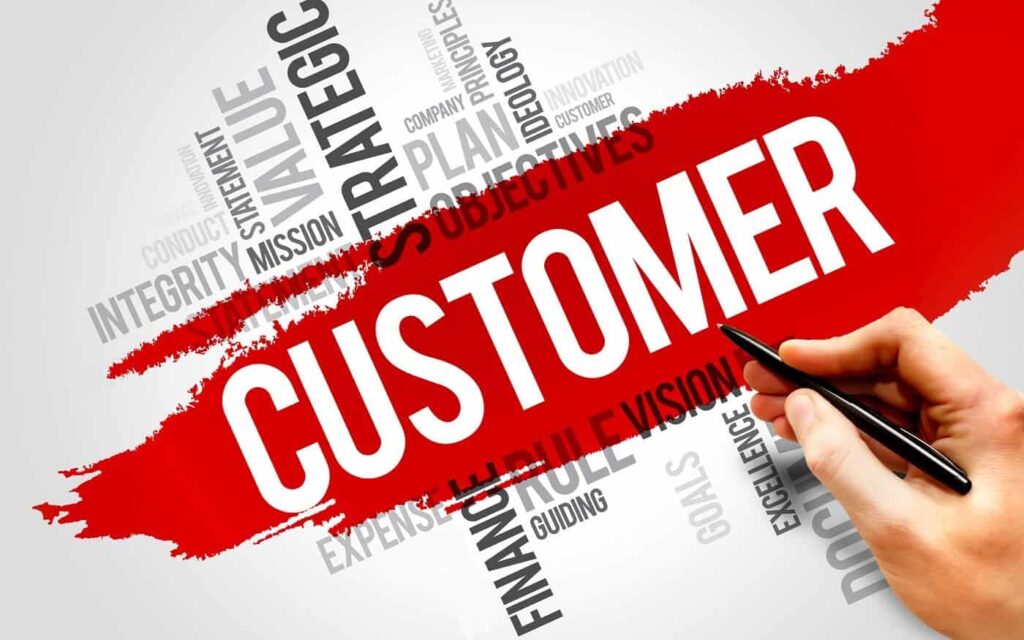The Importance of Open Communication, in Leadership
Being a leader requires communication. It is the foundation of any organisation to have engagement between leaders and their teams. Without it organisations can lose their sense of direction. Undermine the role employees play within the company. Leaders must not. Also actively listen. By being genuinely present during discussions employees feel valued. Acknowledged for their contributions.
Defining a Culture of Customer Service
In todays paced business world having a customer oriented culture distinguishes leading companies. Such a culture promotes interactions between employees and customers nurturing and amplifying the core values that drive company success. When companies embrace this culture the result is clear; customer satisfaction. This article aims to provide steps for instilling this customer service ethos in your business.
The Benefits of a Strong Customer Service Culture
A strong customer service culture is more, than desirable; it’s a game changer. Consistently delivering customer service not enhances the overall user experience but also boosts employee morale.
Here are some significant advantages of creating a service culture;
1. Boosted Employee Morale;
Creating an environment that prioritises service enhances job satisfaction promotes relationships among co-workers. Drives better performance.
2. Heightened Customer Satisfaction;
Providing quality interactions builds loyalty ensuring that customers keep coming back.
3. Positive Reputation;
Businesses known for their service attract talent and foster long term customer loyalty.
4. Increased Efficiency;
Teams motivated by a mindset that puts service first increase productivity
5. Customer Handling;
A ingrained service culture equips employees to handle challenging customer situations with grace.
Every organisation should strive to create experiences, for their customers. Achieving this relies on creating an welcoming atmosphere where service’s not just an action but a way of life.
The five essential components of a service-orientated culture
In a culture that prioritises service the ultimate goal is to ensure customer satisfaction by making it the driving force behind every decision and action. Organisations that actively cultivate such a culture consistently excel in providing customer experiences leading to heightened loyalty, word of mouth and ultimately increased revenue. Lets explore the five elements that define a service oriented culture;
1. Putting Customers First;
This forms the foundation of a service oriented culture. By centering their strategies, policies and everyday conduct around meeting customer needs and valuing their preferences and feedback organisations create an environment where customers truly feel heard and valued.
2. Empowering Employees;
To effectively address customer needs and swiftly resolve issues employees must be equipped with the tools, training and autonomy. When employees feel empowered to take initiative and proactively offer solutions that benefit customers it creates an atmosphere of trust and innovation, within the organisation.
3. Open Communication;
Establishing lines of communication between management, teams and frontline employees is crucial, for ensuring everyone understands and embraces the shared vision of service delivery.
In addition it is crucial to communicate with customers in order to comprehend their requirements gather feedback and provide them with information, about solutions or services.
4. Continuous Improvement and Adaptability;
The needs and preferences of customers evolve over time and competitors consistently come up with ideas. A culture that prioritises service places emphasis on training, refining processes and being adaptable to changing circumstances. It is important to have feedback mechanisms like surveys focus groups and feedback forms in place to collect inputs from customers. Additionally the organisation should be flexible enough to make adjustments
5. Recognition and Reward Systems;
Encouraging positive behaviour plays a role in fostering a customer oriented culture. Recognising and rewarding employees who go above and beyond in serving customers can inspire others to do the same. These reward systems can include both rewards like praise and recognition well as external rewards like bonuses or promotions.
Establishing and nurturing a customer oriented culture requires commitment at all levels of an organisation. From management down, to frontline staff. By including these elements into their operations organisations can not meet but surpass customer expectations setting themselves apart within the market.

David Alssema is a Body Language Expert and Motivational Speaker. As a performer in the personal development industry in Australia he has introduced and created new ways to inspire, motivate and develop individuals.
David Alssema started his training career with companies such as Telstra and Optus Communications, and then developed Neuro-Linguistic Programming (NLP) within workplace training as principal of Paramount Training & Development.
As an author/media consultant on body language and professional development David has influenced workplaces across Australia. He contributes to Media such as The West Australian, ABC Radio, Australian Magazines and other Australia Media Sources.







